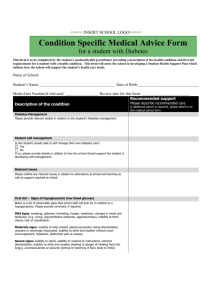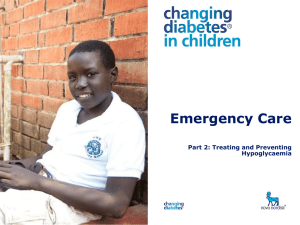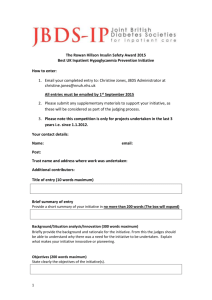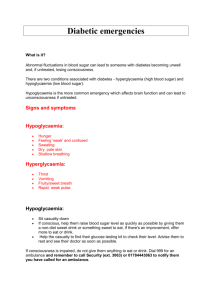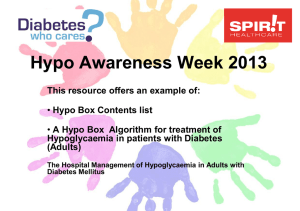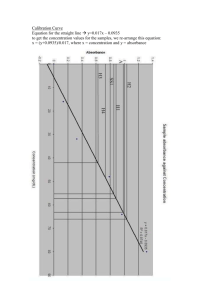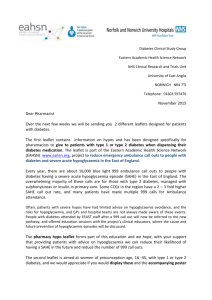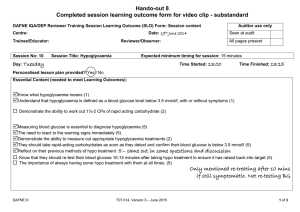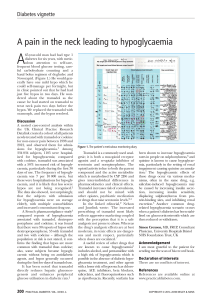Diabetes
advertisement
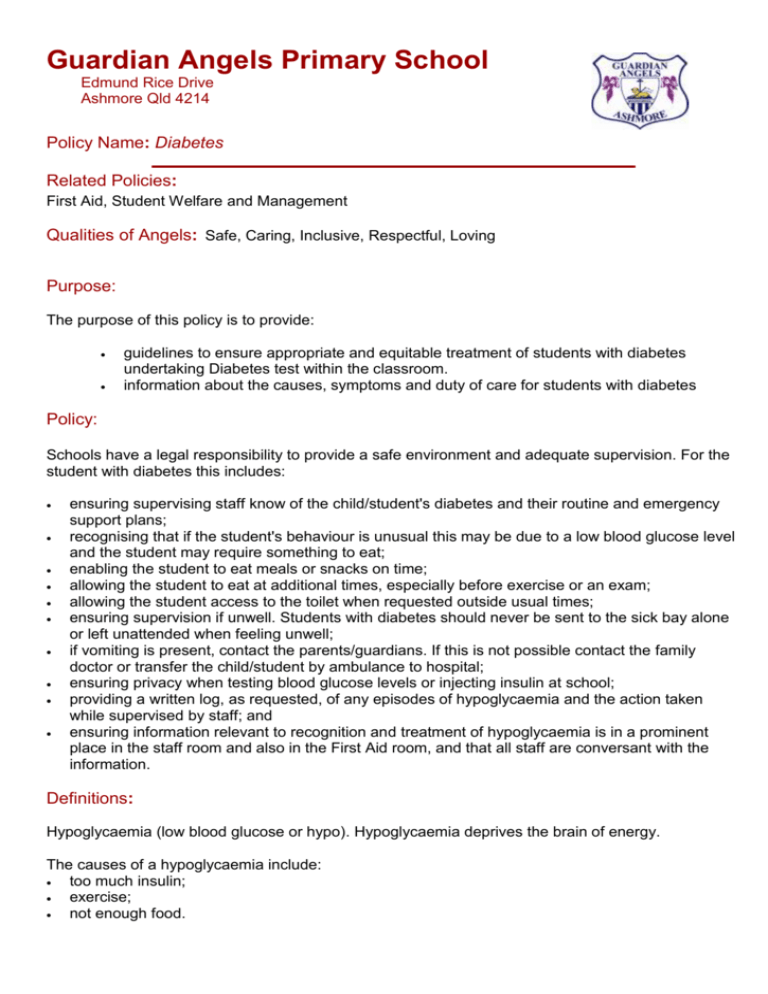
Guardian Angels Primary School Edmund Rice Drive Ashmore Qld 4214 Policy Name: Diabetes Related Policies: First Aid, Student Welfare and Management Qualities of Angels: Safe, Caring, Inclusive, Respectful, Loving Purpose: The purpose of this policy is to provide: guidelines to ensure appropriate and equitable treatment of students with diabetes undertaking Diabetes test within the classroom. information about the causes, symptoms and duty of care for students with diabetes Policy: Schools have a legal responsibility to provide a safe environment and adequate supervision. For the student with diabetes this includes: ensuring supervising staff know of the child/student's diabetes and their routine and emergency support plans; recognising that if the student's behaviour is unusual this may be due to a low blood glucose level and the student may require something to eat; enabling the student to eat meals or snacks on time; allowing the student to eat at additional times, especially before exercise or an exam; allowing the student access to the toilet when requested outside usual times; ensuring supervision if unwell. Students with diabetes should never be sent to the sick bay alone or left unattended when feeling unwell; if vomiting is present, contact the parents/guardians. If this is not possible contact the family doctor or transfer the child/student by ambulance to hospital; ensuring privacy when testing blood glucose levels or injecting insulin at school; providing a written log, as requested, of any episodes of hypoglycaemia and the action taken while supervised by staff; and ensuring information relevant to recognition and treatment of hypoglycaemia is in a prominent place in the staff room and also in the First Aid room, and that all staff are conversant with the information. Definitions: Hypoglycaemia (low blood glucose or hypo). Hypoglycaemia deprives the brain of energy. The causes of a hypoglycaemia include: too much insulin; exercise; not enough food. Hypoglycaemia may occur at any time, but there is a greater chance of this happening with exercise or before the next meal or snack is due. The signs of hypoglycaemia can progress from mild to severe. In MILD hypoglycaemia signs develop which include: sweating, paleness, trembling, hunger, weakness; changes in mood and behaviour (eg crying, argumentative outbursts, aggressiveness); inability to think straight; lack of coordination. In MODERATELY SEVERE hypoglycaemia, additional signs develop, including: inability to help oneself; glazed expression; being disoriented, unaware or seemingly intoxicated; inability to drink and swallow without encouragement; headache, abdominal pains or nausea. In SEVERE hypoglycaemia, the signs have progressed to include: inability to stand; inability to respond to instructions & extreme disorientation (may be thrashing about); inability to drink and swallow (leading to danger of inhaling food into lungs); unconsciousness or seizures (jerking or twitching of face, body or limbs); Procedures: First Aid Response Mild to Moderate low blood glucose 1. Act swiftly. 2. Give sugar immediately, eg 4 large or 7 small jelly beans, or 125-200 mls of sugary soft drink or 2 – 3 teaspoons of sugar, jam, honey. Repeat this treatment if there has been no response within 10 – 15 minutes. 3. When recovery begins to occur give slowly absorbed carbohydrate food (eg sandwich, biscuits, fruit). 4. Supervise - do not leave the student alone. Severe Hypoglycaemia 1. 2. 3. 4. Lie student on side and protect from injury. Maintain A irway, B reathing, C irculation. Call ambulance. Notify emergency contacts. Most Importantly If a student with diabetes is unwell and exhibits the following symptoms the parents should be contacted or if they are unavailable a doctor should be contacted or the student transferred by ambulance to hospital. Vomiting. Rapid laboured breathing. Drowsiness. Abdominal Pain. Sweet acetone smell to the breath. Severe dehydration. Further Information: Juvenile Diabetes Research Foundation http://www.jdrf.org.au/default.asp The Principal Approved by: Guardian Angels Leadership Team Issuing Group: Implementation Date: January 2008 2015 Revision Date: School Contact The Principal Officer:
